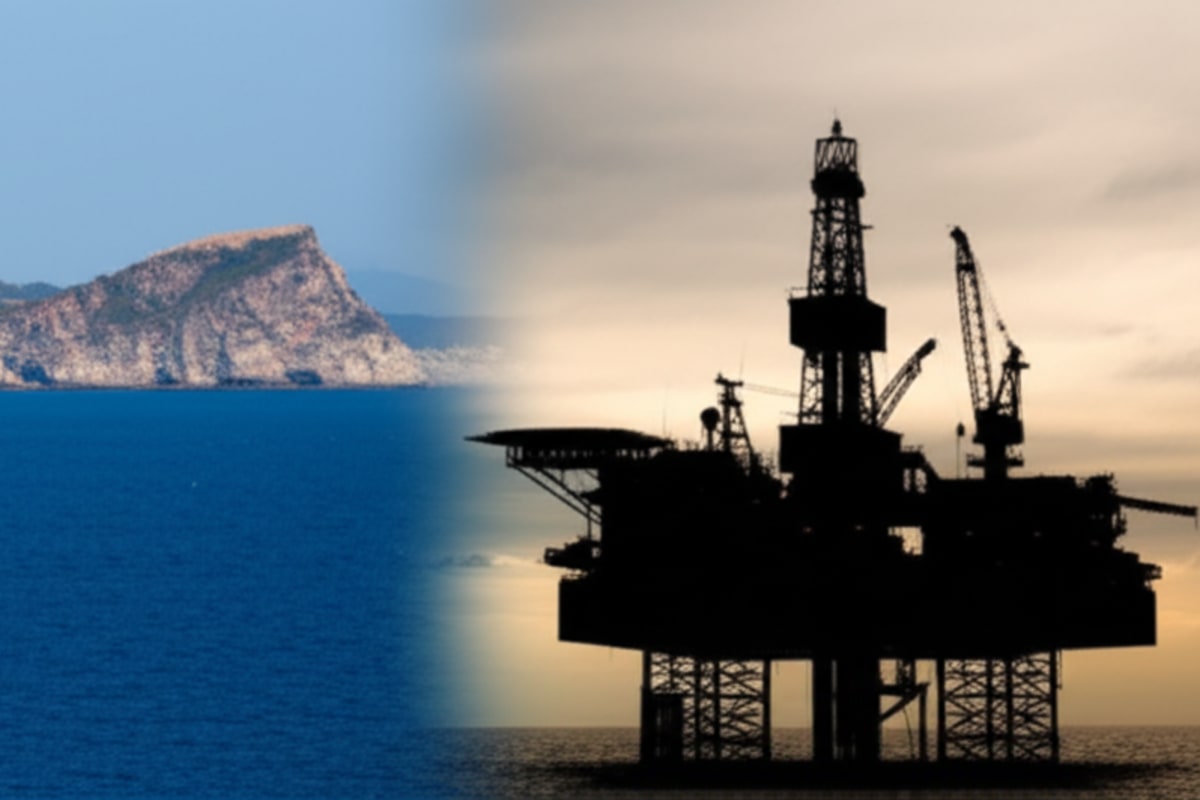Taiwan Condemns China's Illegal Offshore Drilling

Taiwan Condemns China's Drilling Operations in its Exclusive Economic Zone
Taiwan has issued a strong condemnation of China's actions, accusing Beijing of violating international law by conducting oil and gas drilling operations within its exclusive economic zone (EEZ). This escalation of tensions in the already volatile Taiwan Strait has drawn immediate international attention. The accusation, initially reported by The Guardian, centers on the discovery of several Chinese oil rigs and support vessels operating near the Pratas Islands (Dongsha Islands), a group of islands administered by Taiwan.
These islands, strategically located in the South China Sea, are a significant point of contention between Taiwan and China, serving as a key indicator of the broader geopolitical tensions in the region
Taiwan's Condemnation and International Implications
The Taiwanese government, under President Lai Ching-te, has demanded an immediate cessation of these activities.
Background
A strongly worded statement from the Presidential Office characterizes the Chinese actions as a blatant disregard for international maritime law and a violation of Taiwan's sovereign rights
The statement also emphasized Taiwan's commitment to defending its territorial integrity and maintaining regional peace
The move underscores the increasingly assertive posture of China in the region, potentially jeopardizing regional stability and increasing the risk of conflict
Southeast Asian Perspective
For Southeast Asian nations, this incident carries significant weight.
The South China Sea, a region rich in natural resources and strategically important shipping lanes, is a focal point of numerous overlapping territorial claims
Several Southeast Asian nations, including Vietnam, the Philippines, Malaysia, Brunei, and Indonesia, also have overlapping claims in the South China Sea, many of which are contested by China
Therefore, the precedent set by China's actions in the Taiwan Strait near the Pratas Islands directly impacts the broader dynamics of the South China Sea disputes
The assertive behavior displayed by China serves as a concerning precedent for other nations in the region with similar disputes, raising fears of further encroachment and disregard for international law
Key Concerns and Potential Escalation
The incident raises several key concerns:
- Firstly, it challenges the principle of respecting internationally recognized maritime boundaries, potentially destabilizing the regional order and creating a 'might makes right' scenario.
- Secondly, it highlights the vulnerability of Taiwan's maritime territories to Chinese encroachment, raising questions about Taiwan's ability to defend its sovereign claims in the face of China's growing military power.
- Thirdly, the potential for escalating conflict is significant, particularly given the ongoing political tensions between Taiwan and China. Any miscalculation or accidental encounter could quickly escalate into a larger confrontation.
China's Stance and International Law
China has yet to officially respond to Taiwan's accusations as of this writing.
However, given its past actions in the South China Sea, a strong defense of its actions based on historical claims is anticipated
Beijing's stance is typically based on its interpretation of the 'nine-dash line,' a demarcation rejected by international courts as having no basis in international law
This lack of adherence to international norms underscores the need for stronger regional cooperation and international pressure to ensure compliance with the UN Convention on the Law of the Sea (UNCLOS)
International Response and Regional Cooperation
From an international perspective, this incident demands immediate and sustained attention.
Countries with vested interests in regional stability, freedom of navigation, and upholding international law should actively condemn China's actions and call for a diplomatic resolution to this ongoing dispute
A coordinated international effort, involving diplomatic pressure, economic sanctions, and increased military presence in the region, may be necessary to deter further aggression and uphold international law
The incident necessitates a robust international response to prevent further escalation and maintain peace in the region
The potential economic repercussions for Taiwan, and indeed the wider region, are substantial if the drilling activities continue unabated.
Disruption to shipping lanes, damage to marine ecosystems, and a loss of investor confidence are all potential consequences of China's actions
Path Forward: Dialogue and De-escalation
Moving forward, increased regional dialogue and cooperation among affected nations, combined with a strong international condemnation of China's actions, is crucial
International pressure and adherence to international law are essential for safeguarding the rule of law in the South China Sea and preventing further escalations
This incident serves as a stark reminder of the importance of upholding international norms and the need for concerted efforts to de-escalate tensions in this volatile region
The international community must actively engage in mediating this conflict and ensure that all parties adhere to the rules-based international order
The incident underscores the complex geopolitical dynamics at play in the region and the urgent need for a comprehensive and peaceful resolution
This incident is not just about Taiwan; it's about the entire region and the respect for international law. The precedent set by China could embolden other actors to disregard established maritime boundaries.
- Anya Sharma, Southeast Asia expert at the Institute for Strategic Studies.
